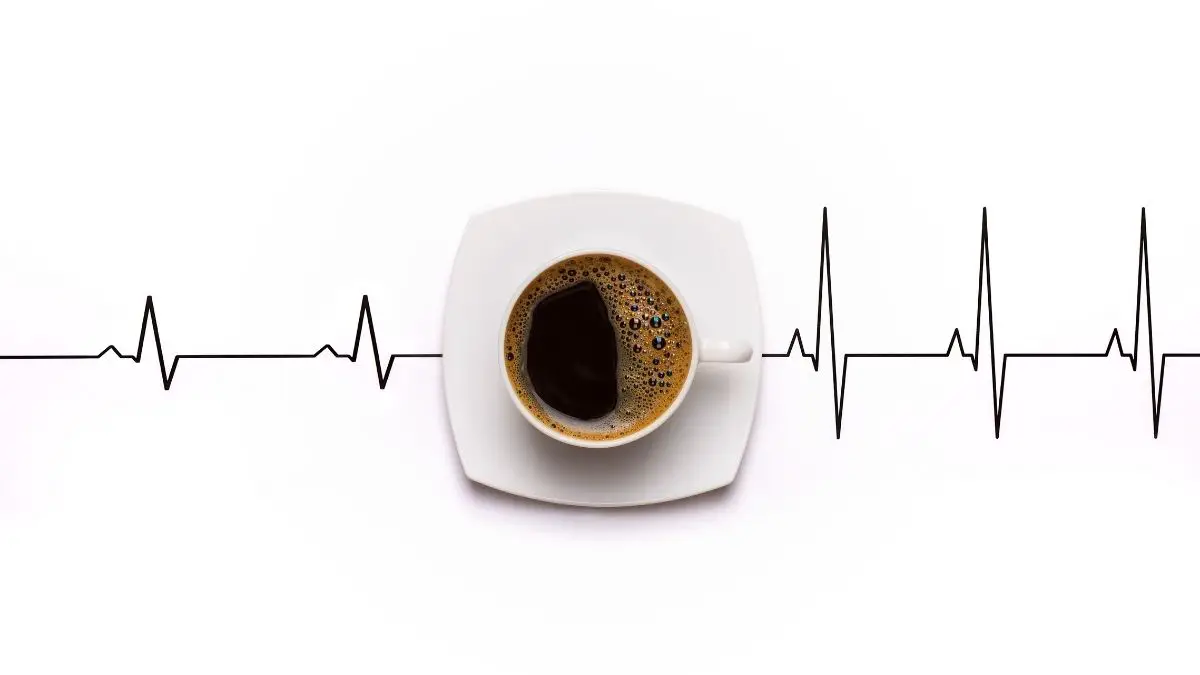Espresso my morning! One of the best-ever beverages invented from Italy is the purest form of a coffee drink that is made by shooting hot water through very finely ground coffee beans under high pressure using a special machine solely made to pull great-tasting espresso shots. An espresso is a concentrated form of coffee that has a richer, stronger taste, and the highly-sought crema on top.
However, much as we’re enthralled by this flavorful shot, did you know that relatively, espresso usually contains higher amounts of caffeine than regular brewed coffee with the same one-ounce serving. Caffeine lasts in the body about 5 hours according to the Academy of Sleep Medicine, but even when an espresso has more caffeine, it doesn’t mean it would last longer, it would just have stronger “jittering” effects.
Caffeine has always been a topic of controversy especially when most of our favorite beverages (coffee, tea, soda, etc.) contain a decent amount of the stimulant. On its own, caffeine has no valuable nutrients or vitamins, and it has both positive and negative effects depending on each person’s health. But as to not lose our main focus here, we’ll be expounding on the effects of caffeine in an espresso shot, the benefits and risks, what we can do about them, and when we can have it.
Caffeine In An Espresso Shot
Caffeine Content
A single espresso shot is usually served as a one-ounce drink in a demitasse cup and can be enjoyed as is or mixed in another beverage like cappuccino or Americano. Other coffeehouses would sometimes more commonly serve double shots of espresso called a doppio, while others prepare an espresso called lungo which is prepared with the same amount of coffee beans but with more water. Overall, a single espresso shot contains up to 60 mg of caffeine and could be more or less depending on the type of roast, how long it’s brewed, how it’s served, and when mixed with more coffee.
Caffeine Half-Life
The average half-life of caffeine varies between three to five hours depending on a person’s tolerance and metabolism. Half-life is the amount of time it takes for half of a substance to disintegrate, and the reason why the effects are measured this way is that the time for the other half of the substance to disappear completely is immeasurable and variable.
So if you take an espresso shot in the morning, you will experience its peak effects within 15 – 60 minutes, less if you’re hyposensitive and more if you’re hypersensitive. The first 30 mg of the caffeine in an espresso shot would disappear within three to five hours, while the final half could last in the system longer, but with more subtle to negligible effects. Even if you take 100 mg of caffeine, the first half should still disappear within the given half-life, but more caffeine would give stronger effects.
Due to the fast actions and long-lingering effects of caffeine, it is advised to take it no less than 6 hours before bedtime.
Effects Of An Espresso Shot
As I’ve said, an espresso shot relatively has more caffeine than any other caffeinated drink in the same one-ounce proportion, but serving-wise, there’s less caffeine in a shot of espresso than in an eight-ounce cup of coffee. A shot of espresso should also be enjoyed by sipping it slowly to benefit the full morning-wellness effects of its taste and aroma, in contrast to a shot of booze.
So a shot of espresso isn’t bad at all, even a doppio would be fine too, but according to the FDA regulation on caffeine, 400 mg a day is considered safe for the average adult based on a 2,000 calorie diet, and of course, relatively, one can take less or more depending on their diet, preference, and tolerance. That amount of caffeine a day translates to about four cups of coffee or 6.5 oz of espresso.
Some people take the pure powdered form of caffeine for dietary and energy purposes, but a teaspoon of that is already equal to 28 cups of coffee, so it’s highly advised to take serious precautions.
Caffeine And Adenosine
In a scientific light, caffeine is a type of stimulant known as an “adenosine receptor antagonist.” Our bodies contain receptors that react to adenosine, a natural chemical found in our cells that is more commonly known as ATP. These adenosine receptors help keep the normal rhythm of the heart during normal and strenuous activities.
Adenosine is also an inhibitory neurotransmitter, which allows the brain to sleep more effectively, and every hour that we’re awake in normal conditions, the adenosine in our brain increases. Thus giving the weariness effect.
Our blood also contains adenosine and is broken down by an enzyme known as adenosine deaminase. What this does is simply dilate or expand the blood vessels that supply to the heart. In the kidneys, however, it decreases blood flow. In the liver, it constricts the blood vessels and increases the breakdown of glycogen into glucose as an energy source. In the lungs, it constricts the airways but enhances blood reception. Finally, adenosine suppresses the functions of immunity to a certain extent.
So what happens when caffeine blocks the normal routines of adenosine receptors?
Mental Alertness
Caffeine mainly targets the nervous system and prevents drowsiness, which is why you feel instantly alert and active because the adenosine is suppressed in the brain.
Increased Heart Rate
Caffeine intercepts the normal rhythm of the heart by increasing blood pressure due to the constriction of blood vessels when adenosine is not active. This is what gives you the sudden feeling of nervousness and rush.
Caffeine doesn’t have any proven long-term effects on blood pressure though, but if you already have high or low blood pressure and irregular heart rhythms, consider taking caution and consult your doctor.
Increased Urination
Caffeine indirectly increases the blood flow in the kidneys. This is why you may urinate more often due to the enhanced kidney activity, and also feel dehydrated because of the diuretic effects of coffee.
Improved Energy Consumption
Caffeine blocks adenosine which naturally increases the rate of glycogen conversion into energy, so intaking caffeine helps preserve the glucose in our muscles and uses fat reserves instead as the primary fuel source. This is why you feel the sudden rush of energy because your body switches to burning fat which is a more effective energy source.
This also basically helps you lose extra fat, but you shouldn’t gorge up on caffeine just because of this, excessive caffeine has nasty side effects as well.
Improved Aerobic Capacity
Caffeine increases the amount of oxygen that passes through the lungs by dilating the airways but also decreases the lungs’ ability to receive blood. This, combined with increased blood pressure, allows the body to receive more oxygen at a given amount of time, thus improving muscle activity and ability. However, since the blood flow in the lungs is slightly reduced, this is more effective for sudden bursts of energy like with adrenaline.
Boosted Immunity
Although not a prescribed medicine, caffeine can help protect the body’s immunity against bad bacteria and viruses, this is once again an indirect result due to the interception of adenosine receptors. This is still not a solid fact, but studies from Healthline suggest that it may protect the liver, decrease cancer risk, and improve gut health.
Caffeine And Acidity
The acidity of espresso also varies such as darker roasts having less acidity and lighter roasts falling the higher end of the spectrum. This is important because an espresso already has a high concentration of caffeine which is a triggering factor of acid reflux and heartburns if taken excessively, and a light roast espresso adds acidity to the already acidic environment of the gut which could make things more complicated.
Yes, light roast espressos do exist and are likable because of their more complex and delicious flavors. Yes, you can take light roast espresso if you want to, especially if you’re either a coffee veteran or you’re hyposensitive, meaning you’re less succumbing to the effects of caffeine.
Caffeine And Addiction
Essentially, caffeine is a drug stimulant, and addiction is possible just as much as developed tolerance. Continuous consumption or the normal day-to-day intake of coffee or caffeine eventually leads to addiction or the need to have it at least once or twice a day. Sudden withdrawal or the immediate negligence of the substance may result in severe side effects such as:
- Anxiety
- Irritability
- Migraine
- Drowsiness
- Nausea
Consequently, overdosing on caffeine would also lead to undesirable effects such as:
- Diarrhea
- Dehydration
- Insomnia
- Fever
- Headache
- Troubled breathing
- Chest pains
- Vomiting
- Severe heart rate
- Involuntary erratic behavior
Children, expecting mothers, and elderly people are highly advised to limit their caffeine intake to less than half of the prescribed value for an average adult.
Bottom Line
There is absolutely no harm to an espresso shot in the morning, even two, and perhaps it would even be more beneficial to the average healthy adult given its health and activity benefits. However, espresso is still a highly concentrated form of coffee that has the most stretch of caffeine than any other drink given the same amount and is best used in moderation.
Caffeine is generally considered a safe stimulant and within the first few minutes or hours of consumption, you may easily feel energized, more active, and alleviated. Of course, these effects dwindle as the kidney breaks down the first half within five hours, but if you’re highly susceptible to the effects, then you may still feel highly active for a few hours more.
The effects last longer in adults, but they’re stronger in kids which is why the saying goes, “coffee is for grownups.”
It should also be noted that once the effects of caffeine expire, the adenosine build-up (caffeine doesn’t eliminate adenosine, it simply blocks it) results in a sudden rush of fatigue, which is why after a few hours of drinking coffee, you feel like wanting to sleep, and then you take another dose. Importantly, you’d not want to depend on caffeine too much to stay awake neither for the sake of its short-term benefits. Too much of anything isn’t always good. To counter the undesirable effects of an espresso shot, simply drink more water and feed upon greens and whole foods.


